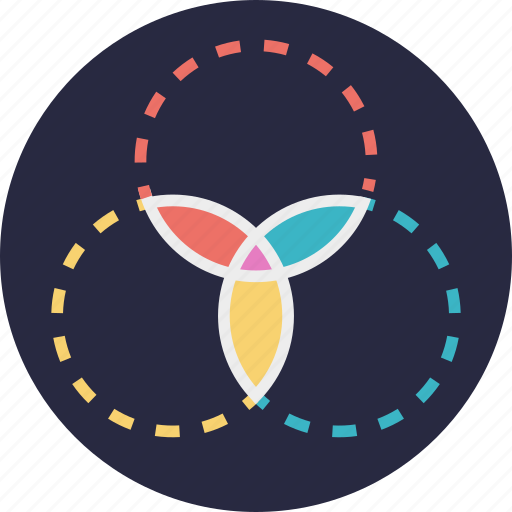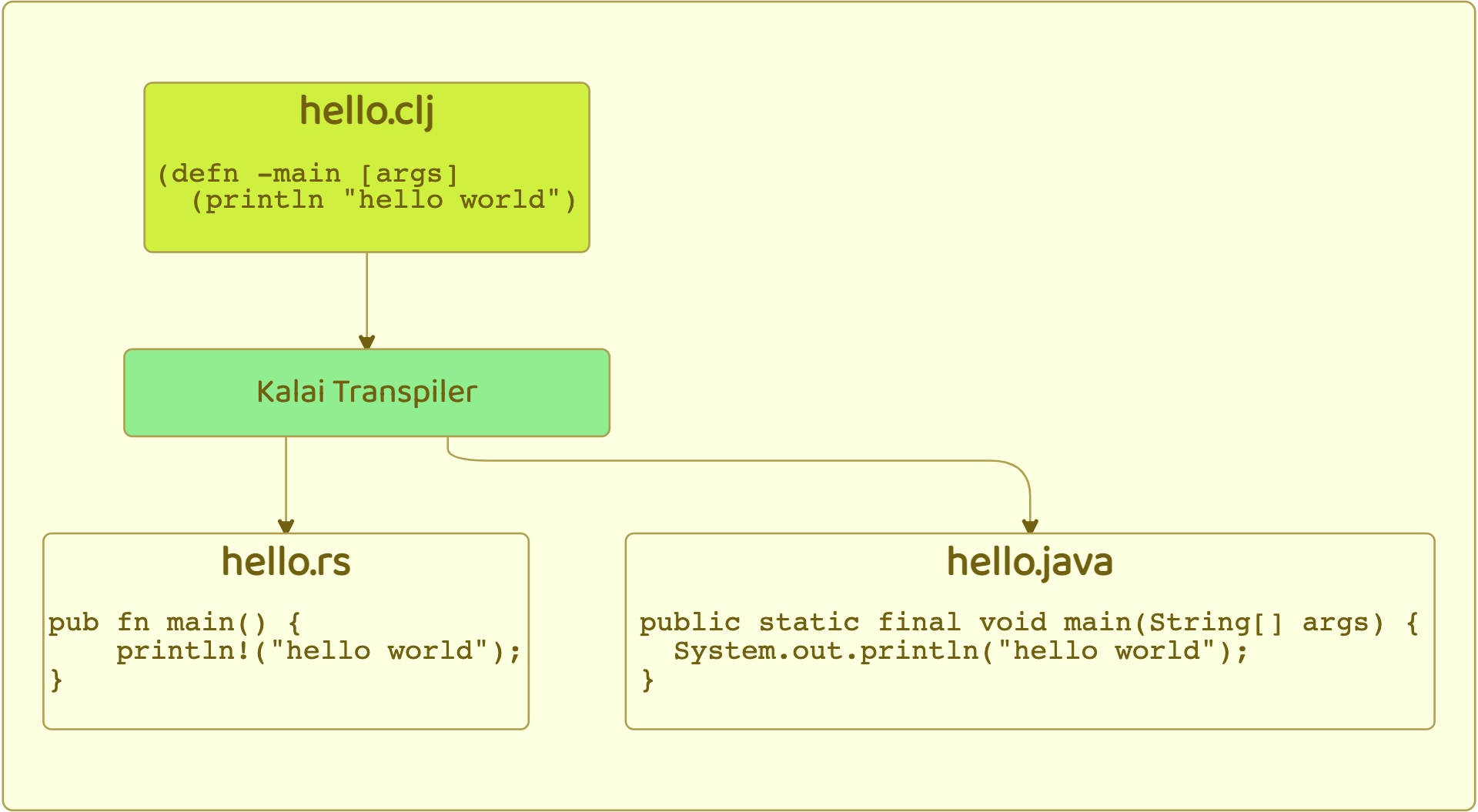Kalai is a source-to-source transpiler from Clojure to other languages (Rust, Java, C++, ...).
The goal of Kalai is to allow useful algorithms to be encoded once and then automatically be made available natively to other target programming languages.
Kalai (கலை) means "art" in Tamil.
<iframe width="560" height="315" src="https://www.youtube.com/embed/32aiLfLwDzc" title="YouTube video player" frameborder="0" allow="accelerometer; autoplay; clipboard-write; encrypted-media; gyroscope; picture-in-picture; web-share" allowfullscreen></iframe>- Rust
- Java
See also kalai.emit.langs/TARGET-LANGS
The easiest way to get started is to follow the pattern established in the examples folder.
The examples/deps.edn defines how you can invoke Kalai.
The examples/Makefile defines tasks to invoke Kalai and downstream compilers.
The examples are described in the "End-to-end toolchain usage" section.
You will need to install the following tools:
clojurecommand-line tool (from the official Clojure distribution, ex:brew install clojure/tools/clojureon macOS)
In order to run Kalai on your input Clojure sources to get output sources in your preferred target programming langauges, you will need to provide the following:
- input source and output source directories
mkdir myproject
cd myproject
mkdir src
mkdir out- create a
deps.ednwith the following contents
{:deps {com.github.kalai-transpiler/kalai {:mvn/version "RELEASE"}}}- create your input source code:
src/mynamespace/simple.clj
(ns mynamespace.simple)
(defn add ^Long [^Long a ^Long b]
(+ a b))- invoke the tool
clojure -M -m kalai.exec.main --verbose --src-dir src --transpile-dir outFor more options, you can run help with
clojure -M -m kalai.exec.main --helpKalai transiples from Clojure to your target language(s).
The code in examples show how to compile your target language code, using Makefiles,
in order to invoke a complete end-to-end process.
You will need to additionally install the following tools:
- Make (simple commands to run transpile+compile examples)
- Gradle (compile Java transpiled code in examples)
- Rustup (install Rust compiler, Cargo, etc.)
Start in the examples directory:
cd examples
To transpile the examples and invoke the downstream compilers:
make
To only invoke the Kalai transpiler:
make transpile
If you don't want to use Make, you can invoke Kalai using the Clojure CLI:
clojure -M -m kalai.exec.main --verbose
To run the compiled output:
./rust/target/debug/demo_01
Kalai is designed to operate on working Clojure source code. Kalai does not introduce any new syntax on top of Clojure. Kalai supports a sufficient subset of Clojure language constructs to represent many useful algorithms and applications.
Namespaces translate to classes, functions translate to static functions, defs and lets translate to variables, atoms translate to mutable data structures, data literals default to equivalent persistent data structures via libraries when used.
Kalai expressly disallows top-level forms other than defn and def.
For example:
(ns foo.bar)
(println "hi")While valid in Clojure, most target languages disallow code execution during compilation, so Kalai will reject this code.
Read more about supported forms in docs/Syntax.md.
Pull requests welcome! See Contributing.
Planned work is sketched out in TODO.
To target another language, provide a language specific pass. See Design and pass.
make deployCopyright © 2020 The Kalai Authors.
This program and the accompanying materials are made available under the terms of the Eclipse Public License 2.0 which is available at http://www.eclipse.org/legal/epl-2.0.
This Source Code may also be made available under the following Secondary Licenses when the conditions for such availability set forth in the Eclipse Public License, v. 2.0 are satisfied: Unicode License (https://www.unicode.org/license.html).


